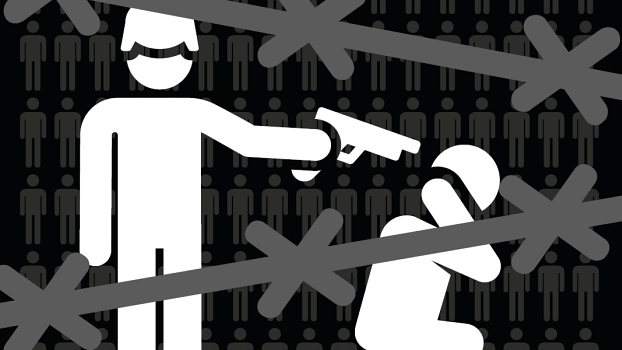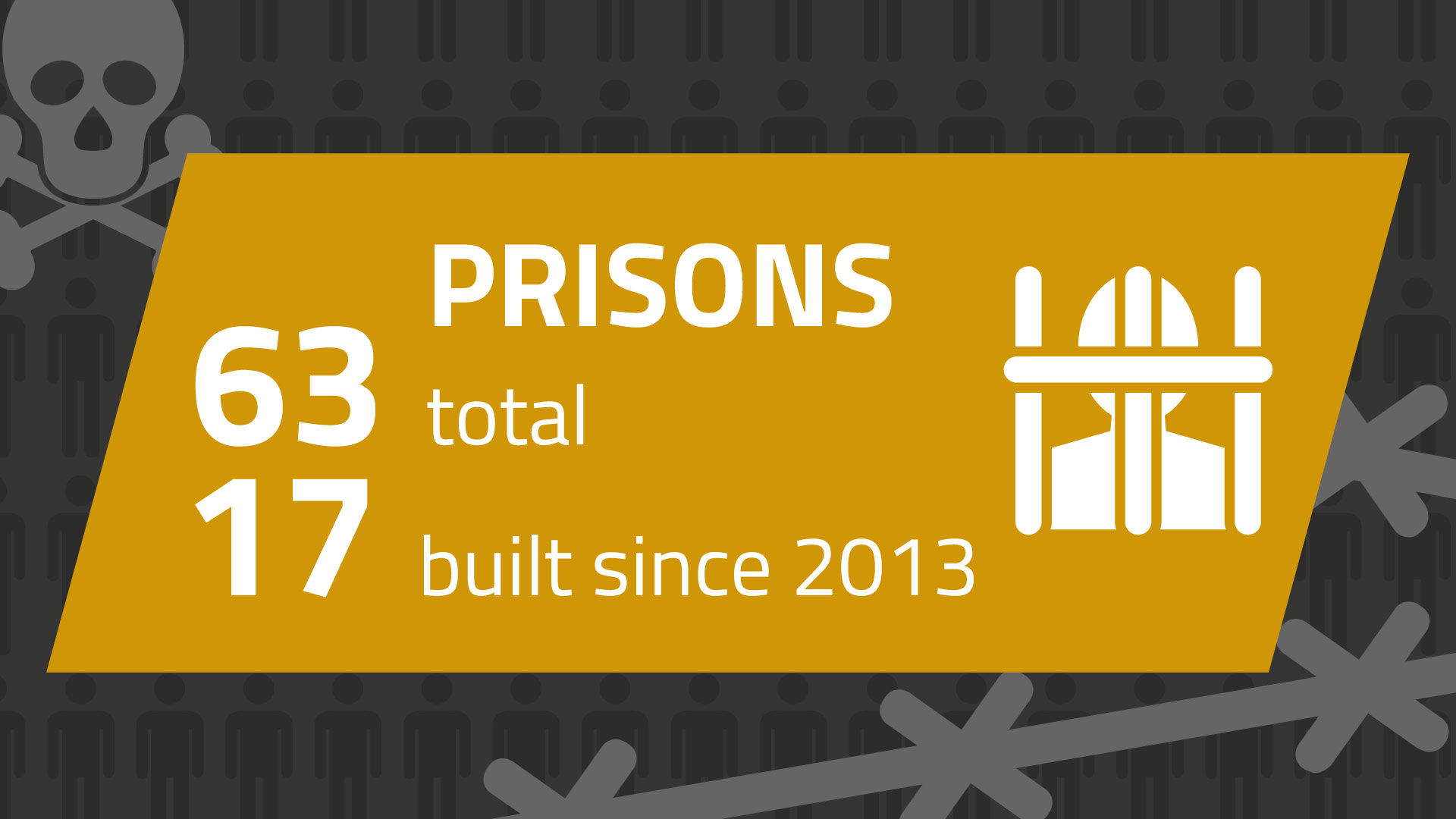Currently, the Egyptian army and police are killing at least two citizens per day. This information is laid out in our new data sheet detailing the massive human rights violations committed by the Egyptian government. Since the military coup in July 2013 the human rights situation in Egypt has constantly deteriorated.
The German and other European governments have neglected to use the means at their disposal to pressure the Egyptian government to respect human rights. Instead, the Egyptian government is still seen as a strategic partner to fight “the war on terror” and to secure the borders against migrants wanting to flee to Europe. Germany’s and Europe’s cooperation with the Egyptian government has become even closer, in particular in the fields of security and migration control despite of the government’s grim human rights record of the recent years.
On the 14 August 2013, Egyptian security forces under then-General Abdel Fattah el Sisi raided two camps of peaceful protesters in Cairo, killing at least 817 people. Human Rights Watch described the massacre as one of the largest killings of demonstrators in a single day in recent history. A month following the “Rabaa Massacre”, on 23 September 2013, the army announced it “will rid Egypt of terrorism within days, maximum within a week.” However, it soon became clear that Sisi’s “war on terror” was essentially a war on dissent, modelled along the “dirty war” strategy that promotes an extreme form of domestic militarized policing aiming at population control and protecting the interests of ruling elites, using the alleged insurgent threat as an excuse.
Daily raids were conducted during which the police and army targeted Muslim Brotherhood leaders, mid-level and base cadres, before expanding the crackdown into a full onslaught on dissent of all political shades, even including politicians and activists who initially endorsed the coup, secular leftists, liberals, members of the LGBTQ community, writers, artists.
University campuses – long considered a no go zone for security forces under the reign of presidents Sadat and Mubarak – were raided by the Interior Ministry’s Central Security Forces and Special Forces deploying live ammunition. Students were shot and killed in broad daylight. The army’s elite paratroopers were brought, on several occasions to crush peaceful protests by female students.
Factory organizers are the targets of crackdowns, and strike leaders are sometimes referred to military tribunals. Independent trade unions, which mushroomed after the 2011 revolution, were stifled.
In Sinai, following decades of marginalization and discrimination against the Bedouins who are treated as second class citizens, a low intensity insurgency had already been in place since 2004. The army relied on strategy and tactics borrowed heavily from the “dirty wars”: massive counter-terror was unleashed, while collective punishment measures were imposed on the towns and cities of Northern Sinai. The city of Rafah was demolished; its population forcefully relocated. The army used cluster bombs and executed suspects extrajudicially. Videos and photos were leaked exposing the army’s executions of innocent civilians, after which guns would be placed beside the corpses and photographed to allege that the executed men were insurgents. The provincial capital, Arish, has been placed under siege, and food supplies have dropped sharply. The army’s brutal tactics create fertile ground for terror recruitment and radicalization.
Civilians continue to face military tribunals and exceptional courts. Forced disappearances of dissidents and suspects remain common.
The government created new bodies and enacted new laws to tighten its grip on local media and internet users. The Egyptian press syndicate was raided by the police, probably for the first time in its history, to arrest journalists who sought refuge inside its building. Scores of journalists remain in prison. Foreign reporters are under constant pressure to abide by the government’s line and views.
The repression, together with failing social and economic policies which have seen an aggressive mixture of neo-liberalism and militarization, and the continuous squandering of resources on white elephant projects, make Egypt a fertile ground for what the regime pretends to fight: radicalism and migration.
For further reading
- Sofian Naceur
Egypt’s new cybercrime law
What Sisi sees (7/2018) - Scirocco
A Case Against Deportations
Animation film about deportations (7/2018) - Sofian Naceur
An “accessory to repression”?
Police training and equipment aid by the EU in North Africa and the Sahel (2/2018) - Hossam El-Hamalawy
Revolution and counter-revolution in Egypt (1/2018) - Sofian Naceur
Q&A with German MP Stefan Liebich
Revealing German arms exports to Egypt (11/2017) - David Suber
Failing Readmission: If sending migrants back won’t work.
A case study of Italy and Tunisia. (June 2017)

